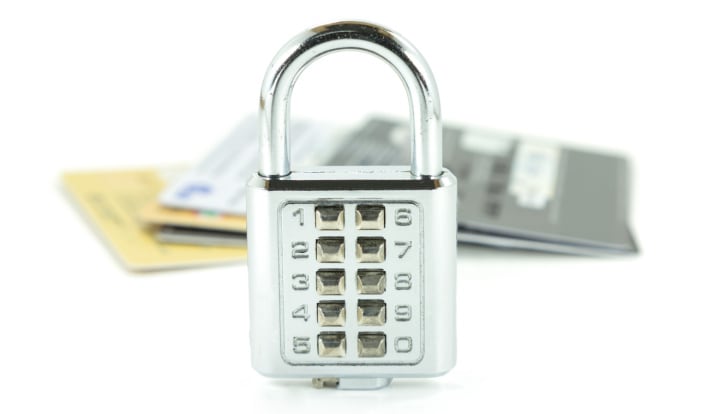CKYC Registry
-
Customer Service Contact us Service request Locate a branch
Find all the help you need
Scan the QR, get our app, and find help on your fingertips

Help CenterSupport topics, Contact us, FAQs and more
-
Login
Are you ready for an upgrade?
Login to the new experience with best features and services
-
Login
Are you ready for an upgrade?
Login to the new experience with best features and services
- Accounts
-
Deposits
IDFC FIRST Bank Deposits
View all Deposits -
Loans
IDFC FIRST Bank Loans
View all Loans - Wealth & Insure
-
Payments
IDFC FIRST Bank Payments
View all Payments -
Cards
IDFC FIRST Bank Cards
View all Cards - Blogs
- Corporate Account
-
Cash Management Services
IDFC FIRST Bank Cash Management Services
View all Cash Management Services - Supply Chain Finance
-
Corporate Lending
IDFC FIRST Bank Lending
View all -
Treasury
IDFC FIRST Bank Treasury
See more details - NBFC Financing
Support topics, Contact us, FAQs and more
- IDFC FIRST Bank Accounts
-
Savings Account
-
Corporate Salary
Account -
Senior Citizens
Savings Account -
First Power
Account -
Current Account
-
NRI Savings
Account -
TASC Institutional
Account -
Savings Account
Interest Calculator
- IDFC FIRST Bank Deposits
-
Fixed Deposit
-
Recurring Deposit
-
NRI Fixed Deposit
-
Safe Deposit Locker
-
FD Calculator
-
RD Calculator
- IDFC FIRST Bank Loans
-
Personal Loan
-
Consumer Durable
Loan -
Home Loan
-
Business Loan
-
Professional Loan
-
Education Loan
-
New Car Loan
-
Pre-owned Car Loan
-
Two Wheeler Loan
-
Pre-owned Two
Wheeler Loan -
Commercial Vehicle
Loan -
Gold Loan
-
Loan Against Property
-
Loan Against Securities
-
Easy Buy EMI card
-
Personal Loan
EMI Calculator -
Education Loan
EMI Calculator -
Home Loan
EMI Calculator -
EMI Calculator
-
Personal Loan Eligibility Calculator
- IDFC FIRST Bank Wealth & Insure
-
FIRST Select
-
FIRST Wealth
-
FIRST Private
-
Mutual Funds
-
Sovereign Gold Bond
-
Demat Account
-
Term Insurance
-
Life Insurance
-
Health Insurance
-
General Insurance
-
Bonds
-
Loan Against
Securities -
Portfolio Management
Service
- IDFC FIRST Bank Payments
-
FASTag
-
Credit Card
Bill Payments -
UPI
-
Funds Transfer
-
Forex Services
-
Pay Loan EMI
- IDFC FIRST Bank Cards
-
Ashva :
Metal Credit Card -
Mayura :
Metal Credit Card -
FIRST Millennia
Credit Card -
FIRST Classic
Credit Card -
FIRST Select
Credit Card -
FIRST Wealth
Credit Card -
FIRST WOW!
Credit Card -
Deals
-
Debit Cards
-
Co-branded Cards
-
Credit Card
EMI Calculator -
FIRST Corporate
Credit Card -
FIRST Purchase
Credit Card -
FIRST Business
Credit Card
- Premium Metal Credit Cards
-
AshvaLifestyle1% Forex₹2,999
-
MayuraLifestyleZero Forex₹5,999
-
FIRST PrivateInvite Only
- Best for travellers
-
MayuraZero ForexMetal₹5,999
-
Ashva1% ForexMetal₹2,999
-
FIRST WOW!Zero ForexTravelLifetime Free
-
FIRST SWYPTravel OffersEMI₹499
-
FIRST Select1.99% ForexLifestyleLifetime Free
-
FIRST Wealth1.5% ForexLifestyleLifetime Free
-
Club VistaraTravelLifestyle₹4,999
-
IndiGo IDFC FIRST Dual Credit CardTravelLifestyle₹4,999
- Max benefits, Free for life
-
FIRST Classic10X RewardsShoppingNever Expiring Rewards
-
FIRST Millennia10X RewardsShoppingNever Expiring Rewards
-
FIRST Select10X RewardsLifestyle1.99% Forex
-
FIRST Wealth10X RewardsLifestyle1.5% Forex
-
FIRST WOW!RewardsTravelZero Forex
-
LIC ClassicRewardsInsuranceShopping
-
LIC SelectRewardsInsuranceShopping
- Reward Multipliers
-
AshvaLifestyleMetal₹2,999
-
MayuraLifestyleZero Forex₹5,999
-
FIRST ClassicNever Expiring RewardsShoppingLifetime Free
-
FIRST MillenniaNever Expiring RewardsShoppingLifetime Free
-
FIRST SelectNever Expiring RewardsLifestyleLifetime Free
-
FIRST WealthNever Expiring RewardsLifestyleLifetime Free
- Rewards & Credit on UPI
-
FIRST Power+FuelUPI₹499
-
FIRST PowerFuelUPI₹199
-
FIRST EA₹NVirtual1% Cashback₹499
-
FIRST DigitalVirtualUPI₹199
-
IndiGo IDFC FIRST Dual Credit CardUPITravelDual cards
- Fuel and Savings
-
FIRST PowerRewardsUPI₹199
-
FIRST Power+RewardsUPI₹499
-
LIC ClassicRewardsInsuranceShopping
-
LIC SelectRewardsInsuranceShopping
- Express and Flaunt
-
AshvaMetal1% Forex₹2,999
-
MayuraMetalZero Forex₹5,999
-
FIRST SWYPEMIOfferMAX₹499
-
FIRST MillenniaRewardsShoppingLifetime Free
- FD Backed rewarding Credit Cards for all
-
FIRST EA₹NVirtualCashback₹499
-
FIRST WOW!Zero ForexTravelLifetime Free
-
CreditPro Balance TransferTransfer & SaveReduce InterestPay Smartly
- IDFC FIRST Bank NRI Forex Solutions
-
Send money to India-Wire transfer
-
Send money to India-Digitally
-
Send money abroad
-
Max Returns FD (INR)
- IDFC FIRST Bank MSME Accounts
-
Platinum Current
Account -
Gold
Current Account -
Silver Plus
Current Account -
Merchant Multiplier
Account -
Agri Multiplier
Account -
TASC Institutional
Account -
Dynamic Current
Account -
World business
Account -
First Startup
Current Account
- IDFC FIRST Bank Business Loans
-
Business Loan
-
Professional Loan
-
Loan Against Property
-
Business Loan for Women
-
Working Capital Loan
-
Construction Equipment Loan
-
Machinery Loan
-
Healthcare Equipment Loan
- IDFC FIRST Bank Business Solutions
-
Payment Solutions
-
Tax Payments
-
Doorstep Banking
-
Point of Sale (POS)
-
Escrow Accounts
-
NACH
-
Payment Gateway
-
UPI
-
Virtual Accounts
-
As per amendment in the Income Tax Rules, PAN or Aadhaar are to be mandatorily quoted for cash deposit or withdrawal aggregating to Rupees twenty lakhs or more in a FY. Please update your PAN or Aadhaar. Kindly reach out to the Bank’s contact center on 1800 10 888 or visit the nearest IDFC FIRST Bank branch for further queries.
-
-
Most Searched
Sorry!
We couldn’t find ‘’ in our website
Here is what you can do :
- Try checking the spelling and search
- Search from below suggestions instead
- Widen your search & try a more generic keyword
Suggested
Get a Credit Card
Enjoy Zero Charges on All Commonly Used Savings Account Services
Open Account Now
Credit Card
Tips to keep credit card details secure in the digital age
Summary: With a tremendous increase in online transactions, instances of cybercrime are also on the rise. You need to keep your credit card details safe and protect your credit card information to avoid possible financial losses. Read on to learn how.
Suvam was checking his credit card bill and was surprised to discover an online transaction he never did. When he called the bank to check the credit card details, the truth emerged – Suvam was a victim of credit card fraud.
Suvam is not the lone victim. Data reveals that 3596 credit card and online fraud cases were reported in the financial year 2021-22. The aggregate value was Rs 155 crores.
Digitisation and increasing cybercrime
Digitisation has taken the world by storm, especially when it comes to online transactions. Per the Internet and Mobile Association of India's report, about 346 million Indians do online transactions. In the third quarter of the financial year 2023, digital transactions worth Rs 38.3 lakh crores were logged. Of these, credit cards contributed to about 7% of the transaction volume.
As credit cards become popular in digital transactions, securing their details is important. Therefore, you must practice precautionary measures to protect your credit card information and avoid fraud and scams.
How do you do that?
By practising simple habits, you can protect your credit card information.
Let's have a look at such practices.
Practices to secure credit card details
· Choose reputable websites
The brand name is important, especially when maintaining the authenticity of online transactions. Choose reputed websites and mobile applications to transact using your credit card. You can check the website URL to ensure its security. If the URL has 'https,' it is secure because the 's' in the URL stands for secured.
READ MORE
You can also see a lock sign on secured URLs or online websites. These things foster trust. If the website or portal has these safety measures, you can transact without worrying about security.
· Use two-factor authentication
Two-factor authentication, or 2FA as it is popularly called, is a process in which your identity is verified in two steps using two methods.
Most credit card transactions follow the 2FA method of verification for security. You must enter your CVV (Card Verification Value) when you transact and follow it up with an OTP (One-Time Password) sent to your registered mobile number. The CVV and the OTP serve as a 2FA and complete a secured transaction.
· Choose strong and unique passwords
The password for your online accounts and credit card (CC) details should be unique. This makes guessing the password difficult, and your account remains protected.
You can try alphanumeric passwords with special characters. Here are some suggestions -
· Use a letter in uppercase
· Use some letters in lowercase
· Use special symbols like $, @, *, #, etc.
· Use numbers like 1,2,3,0, etc.
You can also create long-tail passwords which are difficult to guess. Avoid using common dates or numbers. It is best to review and change the password after a few months.
· Be wary of phishing scams
How often have you received an email or an SMS stating that you have won a jackpot? Or you might have received a call stating that your card is being blocked.
These are ways fraudsters target vulnerable individuals and trick them into revealing confidential CC details.
Beware of such calls, texts, and emails. Do not fall for fake promises of a jackpot, lottery, prize, or threatening information about your account getting blocked. Do not trust anyone except your bank or credit card company issuing any notice.
Remember, genuine financial institutions would never ask for your personal and financial details. Those who do are fraudsters, and it's better to avoid them.
· Use a virtual credit card
Nowadays, the concept of virtual credit cards is gaining traction. It is an e-version of a card. You don't get the card physically, however, you get the credit card number, CVV, and other relevant details. You can use these credit card details and complete a transaction.
Virtual credit cards protect against skimming and cloning. Fraudsters can copy or clone a physical credit card using advanced machines. This threat is minimised with a virtual card.
· Avoid public Wi-Fi
Public Wi-Fi is available at many public places like airports, railway stations, shopping complexes, etc. However, they are prone to viruses and unscrupulous activities.
Avoid public Wi-Fi even when you get free access. Fraudsters can use the network to hack your credit card details and steal your password.
· Install an antivirus or anti-malware software
While an antivirus is important for your computer/laptop, install it on your tablets and smartphones for complete protection.
Antivirus or anti-malware software protects your online accounts from cyber threats. They detect and prevent suspected virus attacks for a safe browsing and transacting experience.
· Pick encrypted payment gateways
Encrypted payment gateways are secured gateways that prevent the possibility of data theft or cyber crime when you transact. These gateways keep your credit card details safe so that you can transact stress-free.
Look for websites that offer such payment gateways. Usually, when you go to the payment page, the security encryption is highlighted. You might see the following security options –
· PCI DSS (Payment Card Industry Data Security Standard) (used across major credit cards)
· SLL (Secured Socket Layer)
· SET (Secured Electronic Transaction), etc.
These options show that the gateway is secured and you can transact safely.
For instance, IDFC FIRST Bank Credit Cards offer secured payment gateways for safe transactions.
· Tokenisation
Tokenisation is a new concept introduced in recent times to prevent unauthorised usage. Under tokenisation, your credit card number is converted into a random token number. The token contains your credit card details to facilitate the transaction. You can use the token to complete the transaction.
Tokenisation protects your credit card details since your actual number is not revealed. Moreover, the token is valid only for one transaction. After you use it, it becomes invalid for future use. This increases the security of your credit card information.
IDFC FIRST Bank Credit Cards come with the facility of tokenisation. You can secure your credit card details on merchant platforms with random and unique tokens for complete security.
The bottom line
Banks and financial institutions have been promoting safety measures to protect your credit card details. It all boils down to you.
Be vigilant and stay safe against possible cyberattacks or crimes. Follow the practices above and keep your credit card information secured. Your CC details are meant for you and should be kept confidential. So, avoid sharing them with anyone. Conduct safe online transactions and enjoy the rewards and benefits that credit cards bring without worrying about fraud.
Disclaimer
The contents of this article/infographic/picture/video are meant solely for information purposes. The contents are generic in nature and for informational purposes only. It is not a substitute for specific advice in your own circumstances. The information is subject to updation, completion, revision, verification and amendment and the same may change materially. The information is not intended for distribution or use by any person in any jurisdiction where such distribution or use would be contrary to law or regulation or would subject IDFC FIRST Bank or its affiliates to any licensing or registration requirements. IDFC FIRST Bank shall not be responsible for any direct/indirect loss or liability incurred by the reader for taking any financial decisions based on the contents and information mentioned. Please consult your financial advisor before making any financial decision.
The features, benefits and offers mentioned in the article are applicable as on the day of publication of this blog and is subject to change without notice. The contents herein are also subject to other product specific terms and conditions and any third party terms and conditions, as applicable. Please refer our website www.idfcfirst.bank.in for latest updates.























